Zucchini variety "Orange" with an exotic taste and original appearance: we grow and surprise our neighbors
Until the early 20th century, zucchini was considered the food of the poor. Due to its neutral taste, the vegetable was not appreciated and was considered an ordinary "herb". But today the situation has changed - the "budget" vegetable is loved by all segments of the population. Now the zucchini is a permanent resident in the beds of most gardeners. Zucchini are unpretentious to care for and require a minimum of attention. Moreover, the medicinal qualities of the product deserve a special talk.
Consider one of the most delicious varieties of Orange, which is distinguished by its exotic appearance and originality in application.
The content of the article
Description of the variety
Orange is a precocious hybrid. From the moment of sowing, the crop is harvested after 2 months. The plants themselves are powerful but compact. There are many ovaries, medium size. Due to its unusual appearance, the hybrid cannot be confused with other zucchini.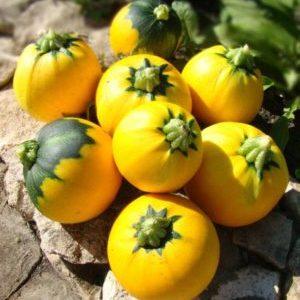
Origin and development
The Apelsinka variety appeared as a result of the labor of Russian breeders. During its creation, great attention was paid to taste and pulp.
Orange has a delicate taste and smooth skin. The variety quickly won the recognition of many gardeners, therefore it became widespread in Russia, especially in the Urals and Siberia.
Distinctive features
First of all, the interesting appearance of the plant is noted. At first glance, it seems that the bushes are covered with large yellow oranges. Hence the name came from.
Zucchini is grown both in greenhouses and in the open air. Best of all, the hybrid takes root after legumes, cabbage or onions.
Fruit characteristics and yield
The average diameter of one zucchini is about 15 cm, weight is about 300-500 g. It has an attractive yellow color and a spherical shape. "Oranges" contain few seeds and dense flesh.
They are widely used in cooking, as well as in dietary and baby food. Gardeners collect about 3 kg of a ripe crop from one bush, in greenhouse conditions - up to 6-8 kg.
How to grow
Zucchini is grown in a seedling or non-seedling way. Below we will consider each of them.
Planting without seedlings
Seeds are sown after frost. Ideally, the air temperature should be at least 14 degrees. Be sure to disinfect the soil and seeds before planting. To do this, use hydrogen peroxide or aloe juice.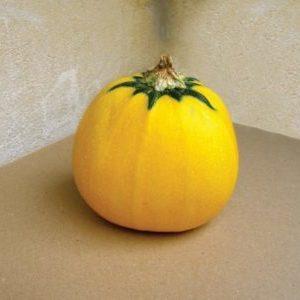
Also prepare the beds, remove debris and weeds from the fall. To create the most fertile soil, add sawdust or river sand to the beds. The components will act as an excellent drainage layer and retain moisture.
Using a non-seedling method, it is better to cover young seedlings with plastic or cloth. This will help avoid possible frost or fog, which increases the risk of developing diseases. They remove the shelter when the weather is mild and warm.
Read also:
Proper cultivation of squash and care in the open field.
What is the difference between zucchini and zucchini in appearance, taste and other properties.
How to drink zucchini juice: benefits and harms for the body, rules of use.
Planting seedlings
Prepare a container and soil for seedlings. Use plastic cassettes, flower pots, peat tablets, or regular plastic cups for containers. Be sure to treat them with hydrogen peroxide solution before planting.
Use ready-made mixtures as a primer, for example, "Krepysh" or "Universal" composition. They are enriched with vitamins that have a beneficial effect on seed development. Also, ready-made mixtures are already disinfected in advance and contain the required level of acidity.
Keep the seedlings in a warm and light place. Saplings love sun and space, so give the plant access to light. Water every 10 days using only warm water. Don't forget about fertilizing and fertilizing. The seedlings respond well to poultry manure, ammonium nitrate and urea.
Important! Kornevin is used as additional food. From the name it is obvious that the drug strengthens the roots, makes them more developed and powerful. You can buy the product at a gardener store. Use "Kornevin" strictly in accordance with the recommendations on the package.
Care
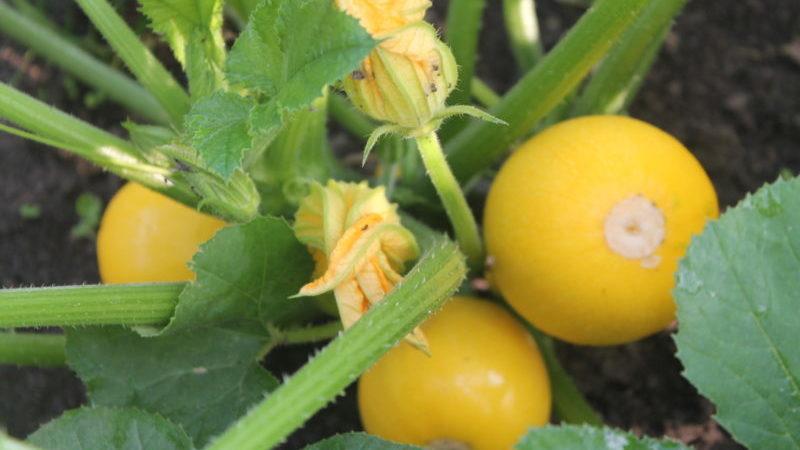
The vegetable is picky about moisture, so the beds are watered regularly. To protect the squash from root rot, water the bushes only with warm water. The frequency of watering is determined by the condition of the soil, on average, the interval is about 7-10 days. If the summer is dry and hot, place straw between the rows. It will help keep moisture in the soil as long as possible.
In addition to watering, the beds with Orange are periodically loosened. Loosening improves oxygen access to the roots, and also saturates the soil with vitamins. After that, it is recommended to remove weeds that live and feed on zucchini. Especially a lot of weed appears after fog, dew and rain.
Pay special attention to feeding... Use mineral formulations and organic fertilizers as food. Use a mixture of cow dung and nitrophoska to strengthen the stems and leaves. And for the best setting of vegetables, water the bushes with wood ash.
Important! Experienced farmers use the Energen growth stimulator as a fertilizer. 2 capsules of the drug are diluted in 10 liters of water and water the plants at the rate of 2 liters of solution per bush. Especially actively "Energen" is used during the fruiting period.
Features of cultivation and possible difficulties
Even an experienced gardener can face the problem of an overabundance of nitrogen-containing substances. This will lead to the fact that all the forces of the plant will go to the development of leaves, and not to the formation of zucchini. To avoid this, observe the exact dosage. The appearance of the plant allows you to determine the excess of nitrogen. The leaves begin to curl and acquire a dark color.
Important! The need for nitrogen decreases in the second half of summer. It is recommended at this time to pay attention to organic matter.
Remember that bushes need individual care during the fruiting period. Fertilizing with yeast, which stimulates the development of beneficial bacteria, is recognized as a good remedy. It is best to feed the plants in warm weather, with a cold snap from yeast fertilizers there will be no benefit.
Diseases and pests
Among the diseases of squash, the most common are:
- White rot is a white bloom on all parts of the plant. The stems become soft and covered with white mucus. The likelihood of the disease increases during the fruiting period. For preventive purposes, it is advised to use only disinfected seeds, regularly water the beds and add ash to the fertilizing.
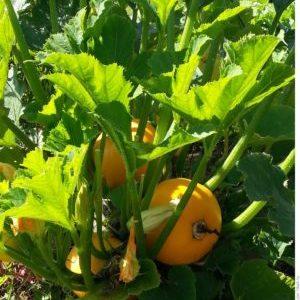
- White mosaic manifests itself in the form of yellow and green spots on the leaves, warts and dryness of the plates. This is a viral disease, therefore, an integrated approach is used for treatment. The best option is a combination of chemicals and folk remedies.
- Fusarium withering affects the root and vessels of the squash. The disease is dangerous because it quickly spreads to neighboring bushes. To prevent wilting, plant mustard or radish next to it, which has a healing effect on the soil.
- Powdery mildew infects leaves and stems, which is why they become covered with a white coating.The virus slowly destroys the bushes and can destroy the entire crop if measures are not taken in time. A proven remedy for powdery mildew is the above-mentioned ash solution or aloe juice.
Of the pests, spider mites and melon aphids attack Orange. Insects disrupt metabolism, as a result of which the plant slowly fades.
As a preventive measure, it is advised to regularly remove weeds and spray the beds with soapy water. Also, don't forget about loosening the soil and weeding. Often it is the wrong care that is the main reason for the appearance of pests.
Harvesting and application of the crop
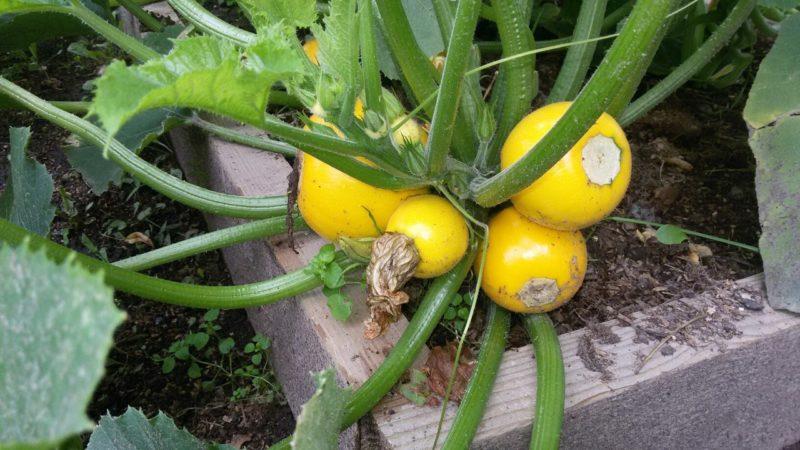
The ripeness of zucchini is determined by touch. If you hear a dull sound when tapping, the vegetable is ripe. On time, the harvested crop is stored longer and has better taste. Harvest the squash every 5 days. For long shelf life, never wash the vegetables, just wipe them with a dry cloth and put them in the basement or cellar. Please note that the room must be dry, warm and well ventilated.
Zucchini is used in the preparation of many dishes... Vegetable stews or baked zucchini are especially popular. Due to its neutral taste, the vegetable is combined with almost all products. Housewives also love to cook zucchini pancakes or use them as blanks for the winter. Zucchini is added to canned tomatoes and cucumbers, used in lecho, and they make healthy and delicious zucchini caviar.
Interesting! Surprisingly, even sweet desserts are made from zucchini. For example, apple-squash cake. Sugar is not added to it, but honey or raisins are used. The dish turns out to be not only tasty, but also healthy. It is eaten with pleasure even by those who follow the figure.
Advantages and disadvantages of the variety
The advantages of the Apelsinka variety include:
- Original appearance. The vegetable is often used as a base for stuffed dishes. Orange will decorate any festive table.
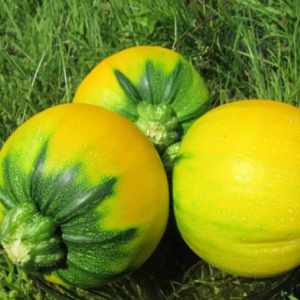
- Excellent taste. Delicate and sweet taste of the variety is combined not only with vegetables, but also with fruits.
- Unpretentious care. Even novice gardeners get high yields. The main thing is to water and loosen the beds in time, as well as remove weeds and apply fertilizers.
- Beneficial features... Regular consumption of zucchini improves the functioning of the gastrointestinal tract, helps to eliminate excess cholesterol from the body. Moreover, zucchini helps to get rid of extra pounds and boost immunity.
- The ability to grow in any region of Russia.
- Versatility in use... Vegetables make excellent and nutritious soups and salads. Also, zucchini is used in recipes for folk cosmetology and masks are made. For example, a product based on zucchini and rolled oats exfoliates and moisturizes the skin well.
Of the minuses, gardeners single out the exactingness of culture to the composition of the soil. It is best planted in loamy soils. In sandy loam soils, Orange can also be planted, but the harvest will be much poorer. Otherwise, the variety has no flaws.
Farmers reviews
The Apelsinka variety receives mostly positive reviews. Summer residents like it for its unpretentious care, taste and appearance. Negative reviews are extremely rare.
Margarita, Volgograd: “I planted Orange on the recommendation of a good friend. The yield exceeded all my expectations. The vegetables are beautiful and tasty, ripened in less than 2 months. Outwardly, the hybrid looks like a melon, the same yellow and sweet. I will definitely plant more. "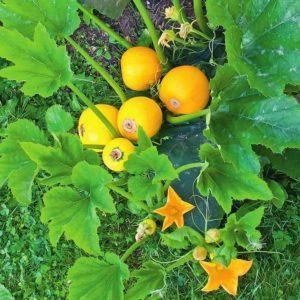
Olga, Belgorod: “For Orange, I always highlight the most fertile and spacious beds. Otherwise, the variety is unpretentious. A drip irrigation system is installed on the site, so the zucchini receives moisture and liquid fertilizers through it. I eat vegetables mostly fresh. So it seems to me tastier and sweeter. Next year I decided to cook pickles. I hope Orange won't let you down. "
Danil, Moscow: “The variety is not picky about care, but I have seen more successful hybrids. The orange, in my opinion, is too soft and slightly watery. I prefer firm flesh. The yield is average, I will not say that this is the best hybrid. "
Conclusion
Zucchini Orange is able to retain its beneficial properties even with prolonged storage... The vegetable can be safely placed in the cellar for the winter and enjoy healthy meals in winter or spring.
Zucchini is rich in antioxidants that keep skin firm and youthful. In addition to the healing effect, the Orange variety will decorate any feast. A beautiful and bright zucchini will impress connoisseurs of aesthetics.